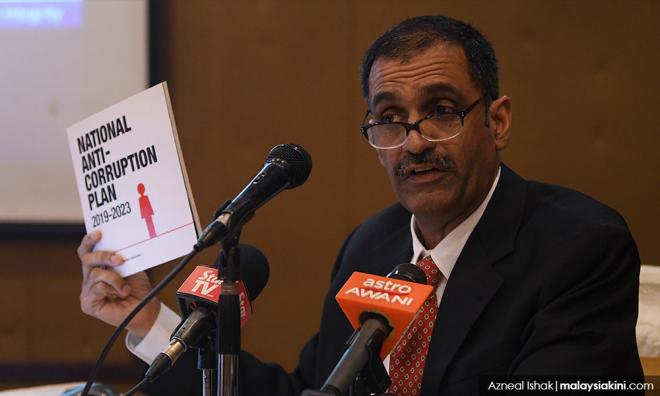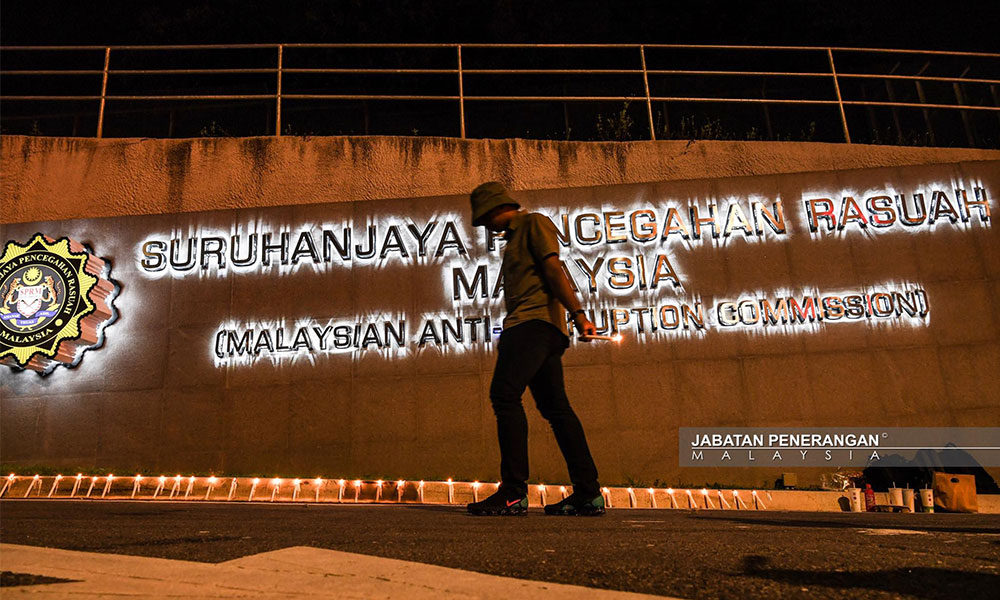
It was reported yesterday that Malaysia has markedly improved in Transparency International’s Corruption Perception Index (CPI) for 2019, jumping 10 spots from the 61st place in 2018 to be ranked 51 last year.
Transparency International Malaysia, which revealed this in a press conference, also informed the public that the country’s score also showed a significant improvement with an increase of six points from 47 in 2018 to 53 points last year.
The score of 53 is the highest since 2012, when the score began to be measured on a 100-point scale. Previously, it was measured on a 10-point scale. Prior to 2012, the highest score for the country was in 1998, when Malaysia garnered a score of 5.3 out of 10.
In 2017, Malaysia’s TI CPI ranked 62, which was the lowest for Malaysia in 25 years since 1995, with a score of 47 out of 100; while in 2018, Malaysia was ranked 61 out of 180 countries with a score of 47.
TI-M president Dr Muhammad Mohan (above) stated that the improvement was due to the new government’s measures in combating graft. He said that swift action on 1MDB, SRC International Bhd, Felda and Tabung Haji scandals, the arrest of several political figures for corruption and money laundering, and greater media freedom all contributed to this.
Further contributions include the appointment of opposition Members of Parliament to the Public Accounts Committee, asset declaration by members of the administration and Members of Parliament as well as the National Anti-Corruption Plan (NACP).
Greater confidence in the MACC
Indeed, there is now greater confidence in the graft busting efforts of the Malaysian Anti-Corruption Commission. The sentiment out there is that the MACC can now be counted on to act upon reports of corruption.
Apart from the high profile prosecution of politicians, Malaysians have also witnessed non-politicians being brought to court. The prosecution of judicial officers (including former Sessions Court judges) and deputy public prosecutors, as well as 18 Road Transport Department officers last year are just some examples.

On the government’s side, the launch of the NACP and the efforts of National Governance, Integrity, and Anti-Corruption Centre (GIACC) shows that they are committed to eradicating corruption.
It would seem that the current administration’s efforts are bearing tangible fruit.
Of course, we still have a long way to go. Jumping 10 spots is great, but there are 50 other countries that rank higher than us. Similarly, a score of 53 out of 100 leaves much room for improvement.
But taking into account that our CPI scores and rankings have been in freefall since 2015, the fact that we have not only managed to arrest the decline but improve is a testament of how things have changed in this New Malaysia.
The CPI ranking is not the only improvement in scores in New Malaysia. Malaysia has improved in five out of six dimensions in the latest World Governance Indicators (WGI) of the World Bank.
We have climbed from number 25 to number 16 in the Global Peace Index (GPI). We rose five notches among 126 countries in the 2019 Rule of Law Index by the World Justice Project (WJP).
We have also seen improvements in the Freedom of the World index by Freedom House, from a score of 45 out of 100 in 2018 to 57 out of 100 in 2019. We have also jumped 22 places in the latest Press Freedom index compiled by Reporters Without Borders (RSF).
Our collective efforts in these areas are given due recognition all over the world. Yet, for some reason, we do tend to disregard or ignore the significant improvements that the country has made since 2018.
SYAHREDZAN JOHAN is a civil liberties lawyer and political secretary to Iskandar Puteri MP Lim Kit Siang. - Mkini



No comments:
Post a Comment
Note: Only a member of this blog may post a comment.